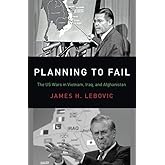
Enjoy fast, free delivery, exclusive deals, and award-winning movies & TV shows with Prime
Try Prime
and start saving today with fast, free delivery
Amazon Prime includes:
Fast, FREE Delivery is available to Prime members. To join, select "Try Amazon Prime and start saving today with Fast, FREE Delivery" below the Add to Cart button.
Amazon Prime members enjoy:- Cardmembers earn 5% Back at Amazon.com with a Prime Credit Card.
- Unlimited Free Two-Day Delivery
- Streaming of thousands of movies and TV shows with limited ads on Prime Video.
- A Kindle book to borrow for free each month - with no due dates
- Listen to over 2 million songs and hundreds of playlists
- Unlimited photo storage with anywhere access
Important: Your credit card will NOT be charged when you start your free trial or if you cancel during the trial period. If you're happy with Amazon Prime, do nothing. At the end of the free trial, your membership will automatically upgrade to a monthly membership.
Buy new:
-23% $26.84$26.84
Ships from: Amazon.com Sold by: Amazon.com
Save with Used - Good
$5.50$5.50

Download the free Kindle app and start reading Kindle books instantly on your smartphone, tablet, or computer - no Kindle device required.
Read instantly on your browser with Kindle for Web.
Using your mobile phone camera - scan the code below and download the Kindle app.

Imperfect Strangers: Americans, Arabs, and U.S.–Middle East Relations in the 1970s (The United States in the World) Hardcover – August 10, 2016
Purchase options and add-ons
In Imperfect Strangers, Salim Yaqub argues that the 1970s were a pivotal decade for U.S.-Arab relations, whether at the upper levels of diplomacy, in street-level interactions, or in the realm of the imagination. In those years, Americans and Arabs came to know each other as never before. With Western Europe’s imperial legacy fading in the Middle East, American commerce and investment spread throughout the Arab world. The United States strengthened its strategic ties to some Arab states, even as it drew closer to Israel. Maneuvering Moscow to the sidelines, Washington placed itself at the center of Arab-Israeli diplomacy. Meanwhile, the rise of international terrorism, the Arab oil embargo and related increases in the price of oil, and expanding immigration from the Middle East forced Americans to pay closer attention to the Arab world.
Yaqub combines insights from diplomatic, political, cultural, and immigration history to chronicle the activities of a wide array of American and Arab actors―political leaders, diplomats, warriors, activists, scholars, businesspeople, novelists, and others. He shows that growing interdependence raised hopes for a broad political accommodation between the two societies. Yet a series of disruptions in the second half of the decade thwarted such prospects. Arabs recoiled from a U.S.-brokered peace process that fortified Israel’s occupation of Arab land. Americans grew increasingly resentful of Arab oil pressures, attitudes dovetailing with broader anti-Muslim sentiments aroused by the Iranian hostage crisis. At the same time, elements of the U.S. intelligentsia became more respectful of Arab perspectives as a newly assertive Arab American community emerged into political life. These patterns left a contradictory legacy of estrangement and accommodation that continued in later decades and remains with us today.
- Print length464 pages
- LanguageEnglish
- PublisherCornell University Press
- Publication dateAugust 10, 2016
- Reading age18 years and up
- Dimensions6.04 x 1.43 x 9.31 inches
- ISBN-100801448832
- ISBN-13978-0801448836
Books with Buzz
Discover the latest buzz-worthy books, from mysteries and romance to humor and nonfiction. Explore more
Frequently bought together

Customers who bought this item also bought
Editorial Reviews
Review
Absolutely essential for understanding how the United States emerged as a multicultural Middle East hegemon.
― Diplomatic HistoryA highly innovative, important, and entertaining book, filled with details about not just top-level diplomacy, but Hollywood films, best-selling books, the assassination of Robert F. Kennedy, and more. It is, or will soon be, required reading for any scholar of U.S. foreign relations in the 1970s, as well as the evolution of post-Second World War American Middle East policy.
― Mashriq & MahjarA fresh perspective on U.S. policy in the Middle East.... Yaqub's nuanced knowledge of the region is impressive.
― The Times of IsraelReview
Imperfect Strangers is a first-rate, highly original, and unquestionably important book. Salim Yaqub brings together consideration of high-level policymaking with analysis of American domestic politics and culture and persuasively argues that the 1970s mark a major―and mostly ignored―turning point in U.S.–Middle Eastern relations.
-- Mark Atwood Lawrence, University of Texas at Austin, author of Assuming the Burden: Europe and the American Commitment to War in VietnamAbout the Author
Salim Yaqub is Associate Professor of History at the University of California, Santa Barbara. He is the author of Containing Arab Nationalism: The Eisenhower Doctrine and the Middle East.
Product details
- Publisher : Cornell University Press; First Edition (August 10, 2016)
- Language : English
- Hardcover : 464 pages
- ISBN-10 : 0801448832
- ISBN-13 : 978-0801448836
- Reading age : 18 years and up
- Item Weight : 1.58 pounds
- Dimensions : 6.04 x 1.43 x 9.31 inches
- Best Sellers Rank: #1,103,647 in Books (See Top 100 in Books)
- #871 in African Politics
- #1,547 in Middle Eastern Politics
- #3,632 in Middle East History
- Customer Reviews:
Customer reviews
Customer Reviews, including Product Star Ratings help customers to learn more about the product and decide whether it is the right product for them.
To calculate the overall star rating and percentage breakdown by star, we don’t use a simple average. Instead, our system considers things like how recent a review is and if the reviewer bought the item on Amazon. It also analyzed reviews to verify trustworthiness.
Learn more how customers reviews work on Amazon-
Top reviews
Top reviews from the United States
There was a problem filtering reviews right now. Please try again later.
Roughly half of the book focuses on US-Arab international relations, with separate chapters on US policy between the 1967 and 1973 wars, Henry Kissinger’s shuttle diplomacy, the US approach to the Lebanese Civil War, and the Camp David Accords. By themselves, these chapters offer an excellent narrative of a pivotal period in US-Middle East relations at the state-to-state level. They synthesize and build on the most recent scholarship, and are meticulously researched.
Interspersed with diplomatic history are fascinating chapters that examine Arab-American relations through the lens of domestic American politics and popular culture. This is perhaps the most groundbreaking aspect of the book. Yaqub presents much new and original research on topics like the growth of Arab-American advocacy groups, the surging popularity of political thrillers set in the Middle East, and even the cultural politics of the FBI's ABSCAM operation - the basis of the popular 2013 film American Hustle. Throughout the book, American perceptions of the Arab world are inextricably linked to perceptions of Israel. Imperfect Strangers suggests that the predominantly pro-Israel orientation of American politics and opinion in the early 1970s did much to damage American views of the Arab world. Skillfully linking diplomatic history with analysis of cultural change, the book shows that growing US commitments to the Arab-Israeli peace process helped to diffuse a pro-Israel verses pro-Arab dichotomy in US popular opinion by the end of the 1970s. Yaqub portrays this development as something of a paradox, and argues that even as Americans developed more nuanced views of the Arab world, the pro-Israel drift of US opinion consistently pushed US foreign policy to favor Israel’s interests over those of Israel's Arab interlocutors.
Imperfect Strangers also weaves in economic history and political economy. The book provides a particularly good overview of the investment of petrodollars in the US and the popular responses it provoked. However, Yaqub says less about US investments and business in the Arab world, whether those of oil companies (which saw their influence reduced by Arab nationalizations in the 1970s), or of US construction firms and defense contractors. Yaqub alludes to controversies in the 1970s over the energy and defense industries’ political ties to Arab states. A section on the evolving relations of US conglomerates like Bechtel, Chevron, or Lockhead Martin with the Arab world might have shed new light on these questions, and rounded out the fascinating discussion of petrodollars.
The historical profession thrives on discrete debates, as concrete sites to contest otherwise nebulous questions, and whether or not the author intended it, Imperfect Strangers wades fully into what international historians have recently termed the “Kissinger Wars,” over the diplomat’s enduring legacy. Yaqub falls clearly among the critics, portraying Kissinger’s Middle East diplomacy as either reactive or devoted to the narrow goal of protecting Israel from outside pressure to relinquish the territory it seized in 1967. This account of Kissinger’s diplomacy is plausible, but there are some equally feasible counterarguments. For one, there is the question of the relative importance of protecting Israel verses weakening Soviet influence in Kissinger’s Middle East policy. Obviously the two motives were generously intermixed, but Professor Yaqub gives much greater emphasis to the former goal over the later. Kissinger’s Soviet contemporaries, like Anatoly Dobrynin or Yevgeny Primakov, saw things differently, suggesting in their memoirs that Kissinger adroitly played the Arab-Israeli peace process (and exploited détente) in order to undermine Soviet influence in the region. They have a point, and 1976-77 marked something of a zenith in the US’ Cold War influence in the Middle East. This was partially due to lucky breaks, including Sadat’s realignment with the US. But Kissinger’s pursuit of a Cold War advantage over the USSR in the Middle East probably deserves more credit, and more emphasis, than Yaqub gives it. Imperfect Strangers may also be too quick to downplay as a mere Kissingerian deception operation the evidence that Kissinger was moving toward some sort of comprehensive settlement to the Arab-Israeli conflict in 1975-1976, and away from his original strategy of dividing the Arabs.
Imperfect Strangers is the definitive book on US-Arab relations in the 1970s: hopefully the questions it raises will ensure it also lends itself to valuable and continued debate among historians. In any case, no overview of US-Middle East relations will be complete without grappling with its meticulously researched and artfully crafted arguments. Yaqub’s skillful interweaving of political and cultural history, meanwhile, establishes a new standard for bringing these sometimes conflicting approaches to the discipline into fruitful harmony.
repeatedly stated assertion that the Arab countries and the PLO led by Arafat were willing to accept an arrangement in the 70s that included recognition of israel ((correctly he doesn't use the word peace....).and he credits the US for sponsoring the Egyptian israeli peace process.the truth is ofcourse the opposite..egypt and israel foisted the process on an unwilling Carter adm. That was because president Sadat realized that neither Syria or Plo are amenable to agreement with israel .cater found out that too through the failure of his Geneve intiative.
I suggest that readers avoid this skewed book and stick with the many good ones that exist.
Has Cornell U.. press even reviewed this book before publication?











